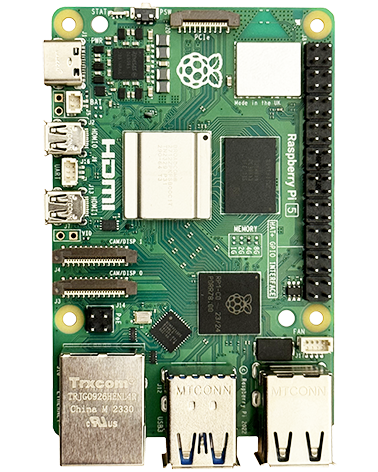Screensaver
If you need to disable the screen saver / screen auto switch off see here.
Auto-running a Python file within a terminal window
Edit the X Windows autostart file:
sudo nano /etc/xdg/lxsession/LXDE-pi/autostartAdd the following line to the end:
@lxterminal -e python /home/pi/myprogram.pySo you end up with something like this:
@lxpanel --profile LXDE-pi
@pcmanfm --desktop --profile LXDE-pi
@xscreensaver -no-splash
@lxterminal -e python /home/pi/myprogram.pyThat’s it, reboot and you should see a terminal window automatically open and run your program.
Auto-running a bash script within a terminal window
Edit the X Windows autostart file:
sudo nano /etc/xdg/lxsession/LXDE-pi/autostartAdd the following line to the end:
@lxterminal -e /home/pi/myscript.shSo you end up with something like this:
@lxpanel --profile LXDE-pi
@pcmanfm --desktop --profile LXDE-pi
@xscreensaver -no-splash
@lxterminal -e /home/pi/myscript.shMake sure your script is executable (right click > Properties > Permissions).
That’s it, reboot and you should see a terminal window automatically open and run your program.
Auto running a program with auto restart on crash
You can use a simple bash script that runs the program and re-runs it should it crash, with writing restart events to a log file:
#!/bin/sh
COMMAND="python ./home/myfolder/my_application.py"
LOGFILE="/home/myfolder/restartslog.txt"
writelog () {
now=`date`
echo "$now $*" >> $LOGFILE
}
writelog "Starting up"
while true ; do
$COMMAND
writelog "Exited with status $?"
sleep 5 #Pause before restart (optional)
writelog "Auto restarting app"
doneMake the .sh file executable and then run it. To forcibly exit use: CTRL+C
Auto run the bash script as detailed above on this page
If you program is python that needs to run inside its virtual environment
#Instead of this:
COMMAND="python ./home/myfolder/my_application.py"
#Use this:
COMMAND="/home/myfolder/venv/bin/python3 /home/myfolder/venv/app/my_application.py"Run with a delay before launching program
To run with a delay before your app launches, instead of adding the path to your app, provide a path to a script we will create:
@sh /home/pi/myapp_start.shExit and save, then create the script file:
sudo nano /home/pi/myapp_start.shInsert the following into the file, setting the delay you want in seconds and the path to your app executable:
#!/usr/bin/sh
sleep 4
/home/pi/projects/myfolder/myappExit and save, then finally make the script executable:
sudo chmod +x /home/pi/myapp_start.shThat’s it, reboot and your app should launch after the delay period
Killing the application while running
Plug in a USB keyboard if necessary and press ALT+F4


9 years ago
How to start the application maximized, though?
5 years ago
did you find out ?? i’m trying to launch thonny at te start up…
5 years ago
I did, but I don’t remember any more. It was not trivial, I had to change the command line I believe
9 years ago
Mine was at /etc/xdg/lxsession/LXDE/autostart
5 years ago
thank you
10 years ago
for me on raspberry pi2 autostart was located here
sudo nano /etc/xdg/lxsession/LXDE-pi/autostart
5 years ago
thanks